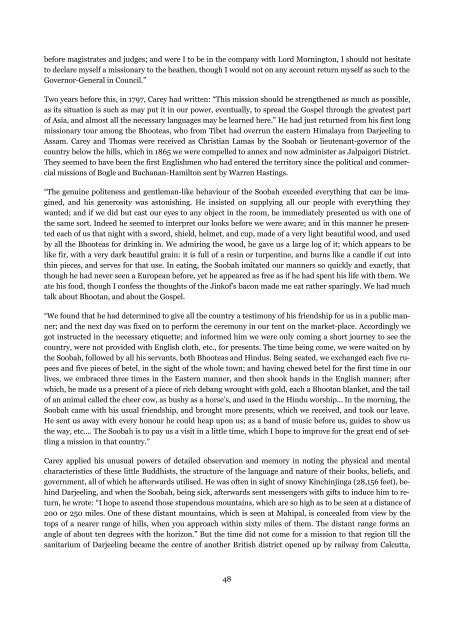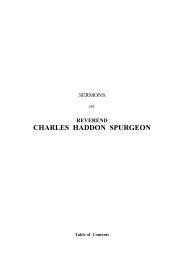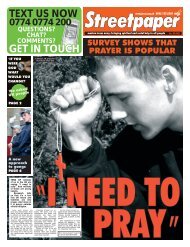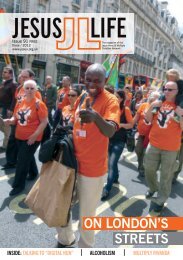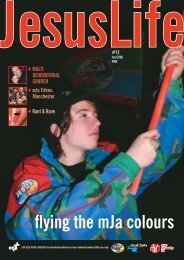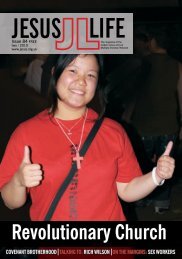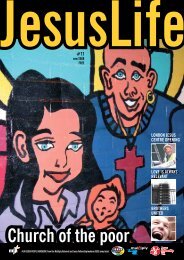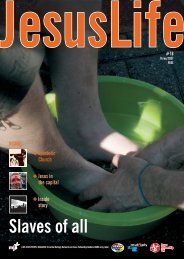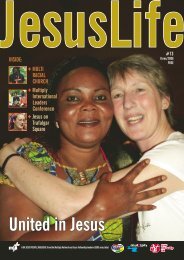Life of William Carey by George Smith - The Jesus Army
Life of William Carey by George Smith - The Jesus Army
Life of William Carey by George Smith - The Jesus Army
You also want an ePaper? Increase the reach of your titles
YUMPU automatically turns print PDFs into web optimized ePapers that Google loves.
efore magistrates and judges; and were I to be in the company with Lord Mornington, I should not hesitate<br />
to declare myself a missionary to the heathen, though I would not on any account return myself as such to the<br />
Governor-General in Council.”<br />
Two years before this, in 1797, <strong>Carey</strong> had written: “This mission should be strengthened as much as possible,<br />
as its situation is such as may put it in our power, eventually, to spread the Gospel through the greatest part<br />
<strong>of</strong> Asia, and almost all the necessary languages may be learned here.” He had just returned from his first long<br />
missionary tour among the Bhooteas, who from Tibet had overrun the eastern Himalaya from Darjeeling to<br />
Assam. <strong>Carey</strong> and Thomas were received as Christian Lamas <strong>by</strong> the Soobah or lieutenant-governor <strong>of</strong> the<br />
country below the hills, which in 1865 we were compelled to annex and now administer as Jalpaigori District.<br />
<strong>The</strong>y seemed to have been the first Englishmen who had entered the territory since the political and commercial<br />
missions <strong>of</strong> Bogle and Buchanan-Hamilton sent <strong>by</strong> Warren Hastings.<br />
“<strong>The</strong> genuine politeness and gentleman-like behaviour <strong>of</strong> the Soobah exceeded everything that can be imagined,<br />
and his generosity was astonishing. He insisted on supplying all our people with everything they<br />
wanted; and if we did but cast our eyes to any object in the room, he immediately presented us with one <strong>of</strong><br />
the same sort. Indeed he seemed to interpret our looks before we were aware; and in this manner he presented<br />
each <strong>of</strong> us that night with a sword, shield, helmet, and cup, made <strong>of</strong> a very light beautiful wood, and used<br />
<strong>by</strong> all the Bhooteas for drinking in. We admiring the wood, he gave us a large log <strong>of</strong> it; which appears to be<br />
like fir, with a very dark beautiful grain: it is full <strong>of</strong> a resin or turpentine, and burns like a candle if cut into<br />
thin pieces, and serves for that use. In eating, the Soobah imitated our manners so quickly and exactly, that<br />
though he had never seen a European before, yet he appeared as free as if he had spent his life with them. We<br />
ate his food, though I confess the thoughts <strong>of</strong> the Jink<strong>of</strong>’s bacon made me eat rather sparingly. We had much<br />
talk about Bhootan, and about the Gospel.<br />
“We found that he had determined to give all the country a testimony <strong>of</strong> his friendship for us in a public manner;<br />
and the next day was fixed on to perform the ceremony in our tent on the market-place. Accordingly we<br />
got instructed in the necessary etiquette; and informed him we were only coming a short journey to see the<br />
country, were not provided with English cloth, etc., for presents. <strong>The</strong> time being come, we were waited on <strong>by</strong><br />
the Soobah, followed <strong>by</strong> all his servants, both Bhooteas and Hindus. Being seated, we exchanged each five rupees<br />
and five pieces <strong>of</strong> betel, in the sight <strong>of</strong> the whole town; and having chewed betel for the first time in our<br />
lives, we embraced three times in the Eastern manner, and then shook hands in the English manner; after<br />
which, he made us a present <strong>of</strong> a piece <strong>of</strong> rich debang wrought with gold, each a Bhootan blanket, and the tail<br />
<strong>of</strong> an animal called the cheer cow, as bushy as a horse’s, and used in the Hindu worship... In the morning, the<br />
Soobah came with his usual friendship, and brought more presents, which we received, and took our leave.<br />
He sent us away with every honour he could heap upon us; as a band <strong>of</strong> music before us, guides to show us<br />
the way, etc.... <strong>The</strong> Soobah is to pay us a visit in a little time, which I hope to improve for the great end <strong>of</strong> settling<br />
a mission in that country.”<br />
<strong>Carey</strong> applied his unusual powers <strong>of</strong> detailed observation and memory in noting the physical and mental<br />
characteristics <strong>of</strong> these little Buddhists, the structure <strong>of</strong> the language and nature <strong>of</strong> their books, beliefs, and<br />
government, all <strong>of</strong> which he afterwards utilised. He was <strong>of</strong>ten in sight <strong>of</strong> snowy Kinchinjinga (28,156 feet), behind<br />
Darjeeling, and when the Soobah, being sick, afterwards sent messengers with gifts to induce him to return,<br />
he wrote: “I hope to ascend those stupendous mountains, which are so high as to be seen at a distance <strong>of</strong><br />
200 or 250 miles. One <strong>of</strong> these distant mountains, which is seen at Mahipal, is concealed from view <strong>by</strong> the<br />
tops <strong>of</strong> a nearer range <strong>of</strong> hills, when you approach within sixty miles <strong>of</strong> them. <strong>The</strong> distant range forms an<br />
angle <strong>of</strong> about ten degrees with the horizon.” But the time did not come for a mission to that region till the<br />
sanitarium <strong>of</strong> Darjeeling became the centre <strong>of</strong> another British district opened up <strong>by</strong> railway from Calcutta,<br />
48


